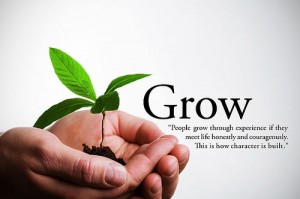 I want to share these amazing points from Harv Eker’s groundbreaking book, “Secrets of the Millionaire Mind” and a brief explanation on why only a few people achieve financial success. If you believe you are happy and satisfied with what you currently have, you must be doing the right things. But if you’ve been working hard your entire life but never achieved wealth, then you must be doing something wrong and CHANGE is what you need, my dear friend. A change in mindset, that is.
I want to share these amazing points from Harv Eker’s groundbreaking book, “Secrets of the Millionaire Mind” and a brief explanation on why only a few people achieve financial success. If you believe you are happy and satisfied with what you currently have, you must be doing the right things. But if you’ve been working hard your entire life but never achieved wealth, then you must be doing something wrong and CHANGE is what you need, my dear friend. A change in mindset, that is.
“Secrets of the Millionaire Mind” reveals the missing link between wanting success and achieving it. Eker does this by identifying your “money and success blueprint.” Furthermore, this book encourages readers to adopt mental attitudes that facilitate wealth.
1. Rich people believe “I create my life.”
Poor people believe “Life happens to me.”
If you want to create wealth, it is imperative that you believe that you are at the steering wheel of your own life, especially your financial life. Having the knowledge from an online finance degree to manage your expenses can be the beginning to manage your financial growth.If you don’t believe this, then you must inherently believe that you have little or no control over your life. Therefore, you have little or no control over your financial success. This is NOT a rich attitude.
Instead of taking responsibility for what is going on in their lives, poor people choose to play the role of the victim.
How can you tell when people are playing the victim? There are 3 obvious clues:
Victim Clue #1: They Blame
Victim Clue #2: They Justify
Victim Clue #3: They Complain
Sound familiar? Have you ever seen anyone behave like that? Blaming, justifying and complaining are nothing more than stress reducers; misguided attempts to alleviate the stress that comes from failure. Think about it: if a person were not failing in some way, would they need to blame, justify or complain? The obvious answer is NO!
By the way, have you ever noticed that there’s no such thing as a really rich victim?
If you have chosen to seek wealth in life, it is imperative that you choose your thoughts and words wisely.
2. Rich people play the money game to win.
Poor people play the money game to not lose.
Do you see the difference? Poor people play the money game on the DEFENSE rather than on the OFFENSE. Let me ask you: If you were to play any sport or any game strictly on the defensive, what would be the chances of your winning the game?
The answer: SLIM and NONE!
Yet that’s exactly how most people play the money game. Their primary concern is seeking survival and security instead of creating wealth and abundance. So what is your goal?
Keep this in mind, if you shoot for the stars, you’ll at least hit the moon!
3. Rich people are committed to being rich.
Poor people want to be rich.
Have you ever heard the saying: “the number one reason most people don’t get what they want is that they don’t know what they want?” In my experience, this is absolutely true!
Commitment comes from knowing exactly why you want to become rich. Rich people are clear that they want wealth and they are unwavering in their desire. They are fully committed to creating wealth. As long as it is legal, moral and ethical, they will do whatever it takes to create wealth.
Most people would never truly commit to being rich. If you asked them, “Would you bet your life that in the next ten years you will be wealthy?” most would say, “No way!” That’s the difference between rich people and poor people. It’s precisely because people won’t commit to being rich that they are not rich, and most likely never will be.
It’s interesting to note, however, that once you do commit, the universe will bend over backward to support you!
4. Rich people think big.
Poor people think small.
One of our seminar trainers went from a net worth of $250,000 to over $600 million in only 3 years. When asked his secret, he said, “Everything changed the moment I began to think big.”
I refer you to the Law of Income, which states, “You will be paid in direct proportion to the value of what you deliver according to the marketplace.”
It is important to know that 4 factors determine your value in the marketplace: supply, demand, quality, and quantity. In my experience, the factor that presents the biggest challenge for most people is quantity. The quantity factor simply means how much of your value do you actually deliver to the marketplace?
Another way of stating this is: how many people do you actually serve?
Small thinking and small actions lead to being broke and unfulfilled. Big thinking and big actions lead to both money and meaning. The choice is yours!
5. Rich people focus on opportunities.
Poor people focus on obstacles.
It comes down to the age-old question, “Is the glass half empty or half full?” We’re not talking positive thinking here, we’re talking about your habitual perspective on the world. Poor people make choices based upon fear. Their minds are constantly scanning for what could go wrong in any situation. Their primary mind-set is “What if it doesn’t work?” or, more often, “It won’t work.”
Middle-class people are slightly more optimistic. Their mind-set is “I sure hope this works.”
Rich people, as I mentioned in a previous e-mail, take responsibility for the results in their lives and act upon the mind-set, “It will work because I’ll make it work.”
Rich people expect to succeed.
6. Rich people admire other rich and successful people.
Poor people resent rich and successful people.
Poor people often look at other people’s success with resentment and envy. They snipe, “They’re just lucky,” or whisper under their breath, “Those rich jerks.”
You have to realize that if you view rich people as bad in any way and you want to be a good person, then you can never be rich. It’s impossible. How can you be something you despise?
The Huna people of Hawaii have a philosophy that says, “Bless that which you want.”
If you resent what people have, you can never have it.
7. Rich people associate with positive, successful people.
Poor people associate with negative, unsuccessful people.
Successful people look at other successful people as a means to motivate themselves. They see other successful people as models to learn from. They say to themselves, “if they can do it, I can do it.”
Rich people are grateful that others have succeeded before them; drawing up a blueprint to follow that will make it easier to attain their own success. Why reinvent the wheel? There are proven methods for success that work for virtually everyone who applies them!
8. Rich people are willing to promote themselves and their value.
Poor people think negatively about selling and promotion.
Robert Kiyosaki, bestselling author of Rich Dad, Poor Dad (a book I highly recommend), points out that every business, including the business of writing books, depends on selling. He notes that he is recognized as a bestselling author, not a bestwriting author. One pays a lot more than the other!
Rich people are usually leaders, and all great leaders are great promoters. To be a leader, you must inherently have followers and supporters, which means that you have to be adept at selling, inspiring, and motivating people to buy into your vision. A skill otherwise known as selling.
Generally speaking, it is the leaders–those who can promote themselves and their products or services–who are able to amass great wealth.
Learn to sell and watch what happens to your net worth.
9. Rich people are bigger than their problems.
Poor people are smaller than their problems.
Poor people will do almost anything to avoid problems. They see a challenge and they run. The irony is that in their quest to make sure that they don’t have any problems, they have the biggest problem of all… they’re broke and miserable!
The secret to success, my friends, is not to try to avoid or get rid of or shrink from your problems; the secret is to grow yourself so that you are bigger than any problem.
If you have a big problem in your life, it simply means that you are being a small person.
10. Rich people are excellent receivers.
Poor people are poor receivers.
If I had to nail down the number one reason most people do not reach their financial potential, it would be this: most people are poor ‘receivers’. They may or may not be good at giving, but they are definitely bad at receiving. And because they are bad at receiving, they don’t receive!
The main reason people are challenged by receiving is that they feel unworthy or undeserving. This syndrome runs rampant through our society. I would guess that over 90 percent of individuals have feelings of not being good.
The reality is, if you think you’re worthy, you are. If you think you’re not worthy, you’re not. Either way, you will live into your story!
11. Rich people choose to get paid based on results.
Poor people choose to get paid based on time.
Poor people prefer to be paid a steady salary or hourly wage. They need the ‘security’ of knowing that exactly the same amount of money is coming in at exactly the same time, month in, month out. What they don’t realize is that this security comes with a price, and the cost is wealth.
Living based in security is living based in fear. What you are actually saying is “I’m afraid I won’t be able to earn enough based on my performance, so I’ll settle for earning just enough to survive or be comfortable.”
Rich people prefer to get paid based on the results they produce. Rich people usually own their own business in some form. They make their income from their profits. Rich people work on commissions or percentages of revenue. Rich people choose stock options and profit sharing in lieu of higher salaries. Notice that there are no guarantees with ay of the above.
Rich people believe in themselves. They believe in their value and their ability to deliver it. Poor people don’t. That’s why they need ‘guarantees’.
12. Rich people think “both.”
Poor people think “either/or.”
Rich people live in a world of abundance. Poor people live in a world of scarcity. Of course, both live in the same physical world, but the difference is in their perspective. Poor and middle-class people come from scarcity. They live by mottos such as “There’s only so much to go around,” “There’s never enough,” and “You can’t have everything.” And although you may not be able to have everything, as in all the things in the world, I do think you can certainly have “everything you really want.”
Do you want a successful career or a close relationship with your family?
Both!
Do you want to focus on business or have fun and play?
Both!
Do you want money or meaning in your life?
Both!
Do you want to earn a fortune or do work that you love?
Both!
Poor people always choose one, rich people choose…
Both!
13. Rich people focus on their net worth.
Poor people focus on their working income.
Rich people understand the huge distinction between working income and net worth. Working income is important, but it is only one of the four factors that determine your net worth. The four net worth factors are:
Income
Savings
Investments
Simplification
Focus on all four net worth factors: increasing your income, increasing your savings, increasing your investment returns, and decreasing your cost of living by simplifying your lifestyle.
14. Rich people manage their money well.
Poor people mismanage their money well.
It may not be the most glamorous of topics, but it comes down to this: the single biggest difference between financial success and financial failure is how well you manage your money. It’s simple: to master money, you must manage money.
And remember, the habit of managing your money is much more important than the amount being managed!
What’s stopping you from managing your money?
15. Rich people have their money work hard for them.
Poor people work hard for their money.
It comes down to this: poor people work hard and then spend all of their money, which results in their having to work hard forever. Rich people work hard, save, and then invest their money so they never have to work hard again.
The trick is to get educated. Learn about the investment world. Become familiar with a variety of different investment vehicles and financial instruments, such as real estate, mortgages, stocks, funds, bonds, currency exchange…the whole gamut. Choose one primary area to begin with and become an expert at that type of investing. Later, you can diversify into a broader portfolio.
Rich people see every dollar as a ‘seed’ that can be planted to earn a hundred more dollars, which can then be replanted to earn a thousand more dollars!
16. Rich people act in spite of fear.
Poor people let fear stop them.
Fear, doubt and worry are amongst the greatest obstacles, not only to success, but to happiness as well. Therefore, one of the biggest differences between rich people and poor people is that rich people are willing to act in spite of fear. Poor people let fear stop them.
The biggest mistake most people make is waiting for the feeling of fear to subside or disappear before they are willing to act. These people usually wait forever.
It is imperative to realize that it is not necessary to try to get rid of fear in order to succeed. Rich and successful people have fear, rich and successful people have doubts, rich and successful people have worries. They just don’t let these feelings stop them!

17. Rich people constantly learn and grow. Poor people think they already know.
At the beginning of my seminars, I introduce people to the three most dangerous words in the English language: “I know that.”
So how do you know if you know something? Simple. If you live it, you know it. Otherwise, you heard about it, you read about it, or you talk about it, but you don’t know it. Put bluntly, if you’re not really rich and really happy, there’s a good chance you still have some things to learn about money, success and life.
When I was broke I was fortunate to get some advice from a multi-millionaire friend of my father’s. He said to me: “Harv, if you’re not as successful as you’d like to be, there’s something you don’t know.” Fortunately, I took his suggestion to heart and went from being a “know-it-all” to a “learn-it-all”. From that moment on, everything changed!
Credit: www.peakpotentials.com


